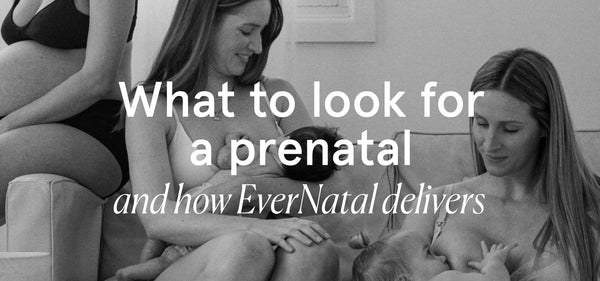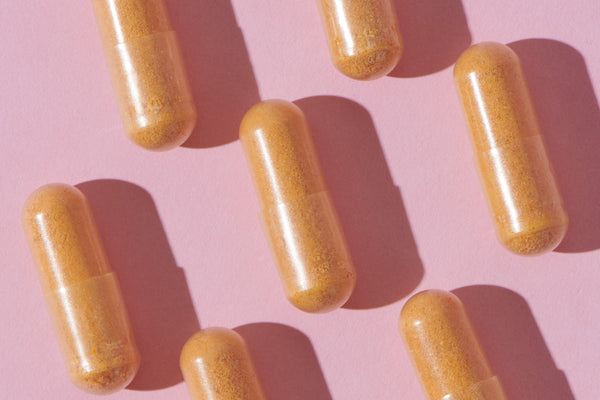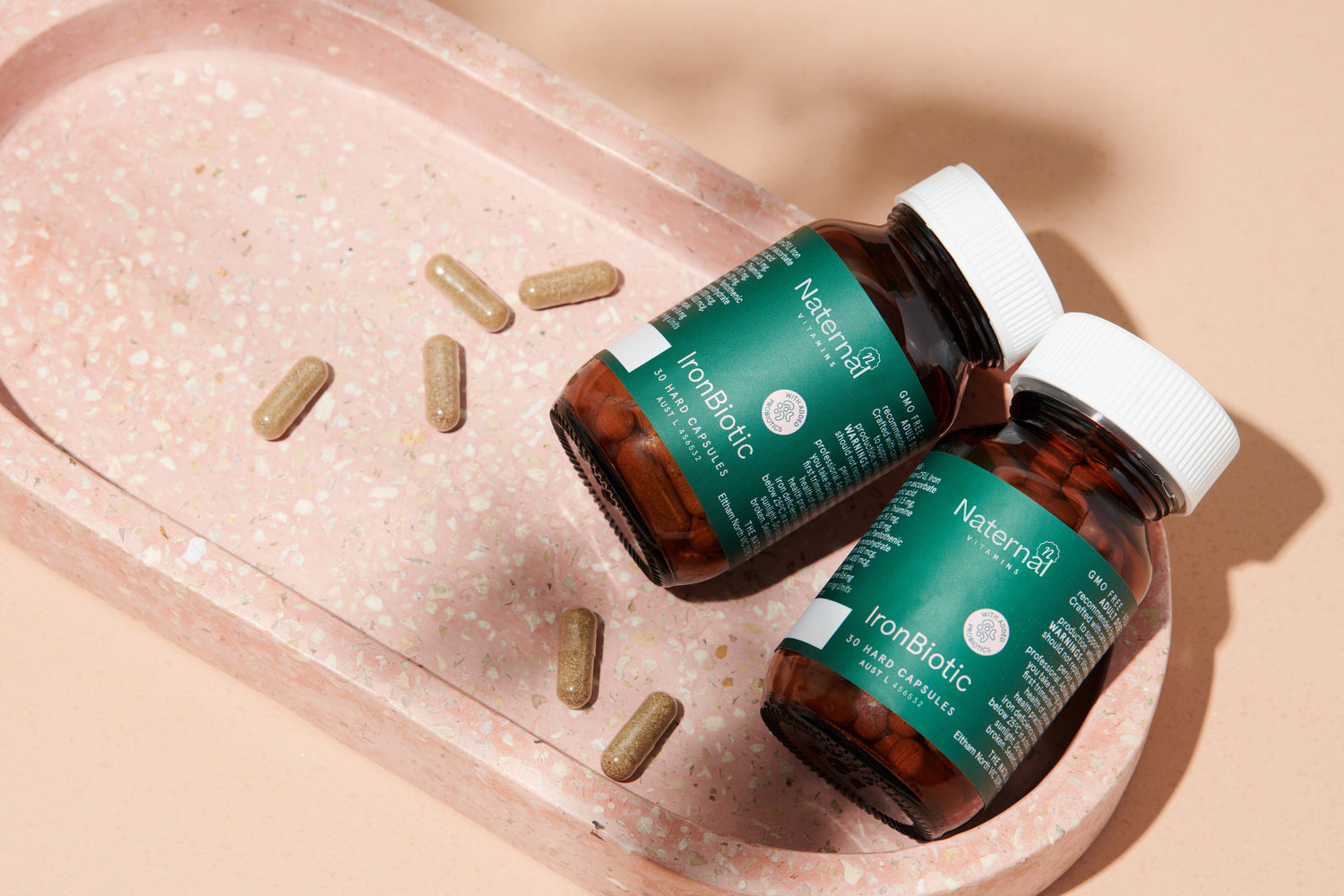Jump to:
The Mind-Body Connection in Pregnancy
Pregnancy is an incredible time of transformation, not just physically but mentally and emotionally too. While most people know that nutrition and rest are vital for growing a healthy baby, fewer realise just how deeply a mother’s emotional wellbeing can shape the baby’s brain development. Emerging research shows that the way we manage stress during pregnancy may have a lasting impact on a child’s cognitive, emotional, and even behavioural outcomes.
What Happens in the Womb Doesn't Stay in the Womb
The brain of a developing baby starts forming very early, as early as five weeks gestation. Throughout the pregnancy, this rapid neurological growth makes the brain highly sensitive to environmental cues, especially stress hormones like cortisol.
✿ When stress levels rise, so does maternal cortisol. These elevated levels can cross the placenta and influence the development of baby’s brain structures like the hippocampus and amygdala, areas involved in memory, learning, and emotional regulation.
✿ High or prolonged stress may increase the risk of behavioural concerns, sleep issues, lower IQ, and even emotional sensitivity in children later on✿ O’Donnell KJ, Meaney MJ. (2017). Fetal origins of mental health: The developmental origins of health and disease hypothesis. Am J Psychiatry, 174(4), 319–328. [PubMed]
Stress & Baby’s Brain: What the Research Says
Recent studies suggest a strong link between prenatal stress and outcomes like attention difficulties and emotional reactivity in toddlers. One Australian study found that babies exposed to higher maternal anxiety showed different patterns in brain connectivity, especially in areas responsible for emotional control✿ Wen DJ et al. (2017). Maternal anxiety, infant brain connectivity and behavioural outcomes. Transl Psychiatry, 7(1), e1041. [PubMed]
Ways to Lower Stress During Pregnancy
You don’t need to be stress-free (that’s unrealistic), but learning how to lower stress during pregnancy can make a meaningful difference, for both of you. These small shifts can support your wellbeing and your baby’s brain development too:
✿ Build a supportive circle
Whether it’s your partner, a friend, midwife, or online pregnancy group, feeling emotionally safe and heard makes a huge difference.
✿ Practice calming habits
Simple tools like gentle movement, breathwork, journaling, or even five quiet minutes with your hands on your belly can shift your nervous system.
✿ Nourish your body consistently
Eating a variety of wholefoods rich in omega-3s, choline, and iron can nourish both brain and nervous system function. Daily pregnancy support with evidence-backed nutrients can help fill in any gaps.
If you’re looking for targeted full-body nourishment that supports both mum and bub, this prenatal offers nutrients specifically chosen for fetal development and maternal mental wellbeing.
✿ Support the gut-brain axis
Your gut is a key player in how you absorb nutrients and even produce calming neurotransmitters like serotonin. Including probiotics and iron-rich foods can help regulate energy and mood. For many, an iron supplement that includes prebiotics and postbiotics can be a gentle and effective choice like this one.
✿ Soothe stress naturally
Magnesium is well-known for its calming effect on the nervous system, and it plays a direct role in muscle relaxation and sleep quality. If you’re feeling wired or rundown, consider gentle magnesium support such as this blend which also supports mitochondrial health and stress recovery.
✿ Don’t forget Vitamin D
Low Vitamin D in pregnancy has been associated with increased anxiety and inflammation. Keeping your levels healthy can benefit both your immune system and your baby’s brain development. If drops feel easiest for you, these vitamin D drops are well absorbed and mum-friendly.
The Bottom Line
You’re not expected to do everything perfectly. Your love, your care, and the way you choose to show up (even on tough days) already shape your baby’s world. Taking small, consistent steps to care for your emotional health not only benefits you, it’s a quiet but powerful way to help your baby’s brain thrive.
Credits
✿ O’Donnell KJ, Meaney MJ. (2017). Fetal origins of mental health: The developmental origins of health and disease hypothesis. American Journal of Psychiatry, 174(4), 319–328. https://pubmed.ncbi.nlm.nih.gov/28292299
✿ Wen DJ, Poh JS, Ni SN, Chong YS, Chen H, Kwek K, Shek LP, Gluckman PD, Fortier MV, Meaney MJ, Qiu A. (2017). Influences of prenatal and postnatal maternal depression on amygdala volume and microstructure in young children. Translational Psychiatry, 7(4), e1103. https://pubmed.ncbi.nlm.nih.gov/28375207
✿ Australian Government Department of Health. (2023). Mental health care in pregnancy. Health.gov.au. https://www.health.gov.au/topics/pregnancy
✿ Healthdirect Australia. (2022). Depression and anxiety during pregnancy. Healthdirect.gov.au. https://www.healthdirect.gov.au/depression-and-anxiety-during-pregnancy
✿ Mayo Clinic. (2022). Stress during pregnancy: Why it matters. MayoClinic.org. https://www.mayoclinic.org/healthy-lifestyle/pregnancy-week-by-week/expert-answers/stress-during-pregnancy
✿ Cleveland Clinic. (2023). Brain development in the womb. ClevelandClinic.org. https://my.clevelandclinic.org/health/articles/7246-fetal-development
✿ Naternal Vitamins. (2025). Product Information. NaternalVitamins.com.au. https://naternalvitamins.com.au






